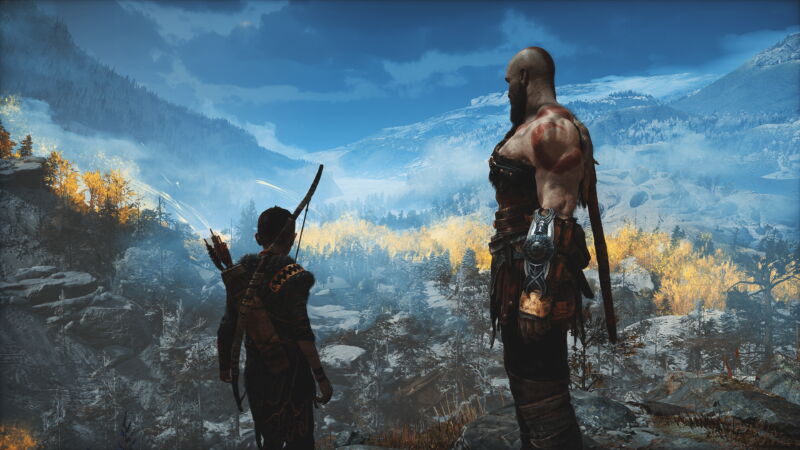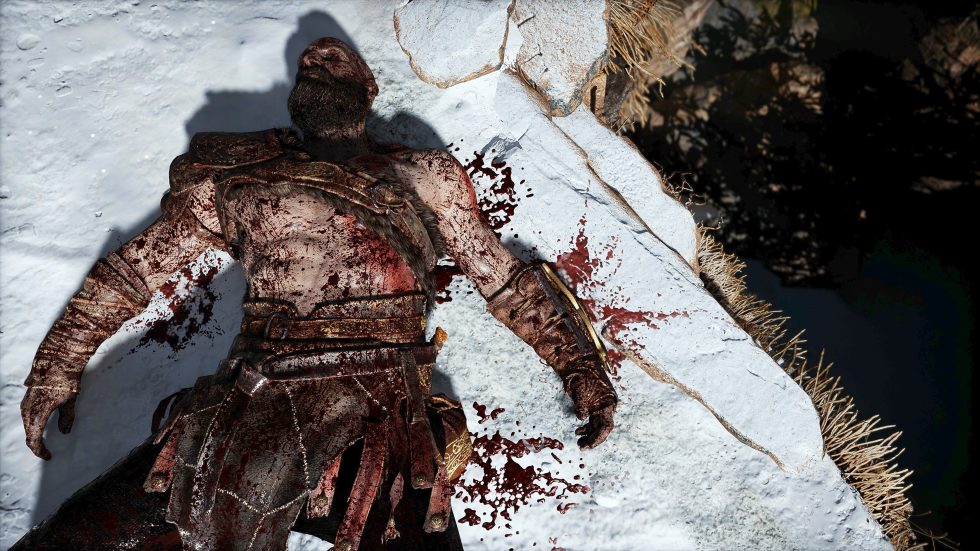
While headlines have suggested that Sony's PlayStation division is more invested in the PC gaming space than ever before, its track record of releases thus far has been a bit shaky, even if the future looks promising. Sony's combined PC-porting studios stumbled in mid-2020 with Horizon: Zero Dawn, although the company eventually massaged that game into decent shape months later. Meanwhile, Days Gone arrived in 2021 with a solid number of PC-specific bells and whistles. That's only two bona fide PlayStation "hits" on PC thus far, leaving plenty of popular series missing.
Sony continues its PC-porting streak in 2022 by announcing two more titles. The first, 2018's God of War reboot, is emblematic of the company's PS4-game-porting aspirations. (Uncharted: Legacy of Thieves Collection, coming later this year, is the second.) Sony Santa Monica provided preview code for God of War's PC port a full four weeks before the game's $49.99 launch this Friday on Steam, the Epic Games Store, Humble, and other PC gaming storefronts. Based on what I've tested thus far, that level of confidence is warranted.
Tiding PC players over before the non-PC Ragnarök
Before digging into God of War's PC specifics (and my recommendations for settings and toggles), let's recap why I care about a port of a four-year-old PS4 game. When the God of War reboot arrived in 2018, the series' original run had accumulated a mix of baggage and fatigue that cooled my initial expectations. It didn't take long for Sony Santa Monica's gorgeous, massive, emotional adventure to change my tune, and the game finished third on Ars' 2018 best-of list.
The reboot is still a damned good game. It incorporates the lessons of the modern 3D adventuring era while maintaining its own identity (and, crucially, avoiding Ubisoft-like issues with open-world bloat). Its sequel, God of War Ragnarök, is slated to arrive sometime this year, so you might look at this 2018 game's port as an advertisement for Ragnarök (currently exclusive to PS4 and PS5 consoles). But whatever Sony's motives are, it's doing the gaming world a favor by finally breaking this fantastic reboot out of its console-only shackles.
Even with a higher resolution on the PS4 Pro and higher frame rates on the PS5, God of War 2018 still left a few graphical upgrades off the table—especially since its PS5 port didn't add a single visual touch-up to the admittedly handsome PS4 base. Can this game be prettier and run more efficiently on PC? Does it have any cool tricks up its sleeve?
Mostly great news

In short: yes and yes.
I use a mid-high performance laptop as a baseline in PC gaming tests. This machine—fitted with an Intel i7-9750H, RTX 2070 Max-Q, and 16GB of RAM—reaches an average of 68.5 fps in a 1080p benchmark sequence at the game's "high" graphical settings default. This test included a generally steady frame-time chart, albeit with a "1 percent low" measurement of 46 fps—admittedly below the same sequence's nearly locked 60 fps refresh on the PS5. (That measurement shows how the worst 1 percent of performance will play out in ways that a flat average might not.)
If you'd like to guarantee the same machine stays closer to 60 fps the whole time, GoW's PC port offers two nifty performance-enhancing options: Nvidia's deep learning super sampling (DLSS) technology, which is exclusive to "RTX"-branded GPUs, and AMD's FidelityFX super resolution (FSR) technology, which works on many more GPUs. Both toggles process and upscale lower-resolution imagery, and they raise the performance on my laptop to at least an 80 fps average (84 fps for DLSS) for this benchmark sequence. Meanwhile, the 1 percent low measurement creeps up to 49.9 fps.
Outside of my choice of benchmark sequence (the first cinematic showdown between Kratos and a mysterious stranger in the game's first half-hour), spot checks of battling performance on this laptop generally showed even better numbers. The 3D engine managed certain particle-filled effects with only occasional stutters. I do wonder if GoW might eventually be updated with preboot shader compilation, a process that slows down a game's first load in order to process its selection of shaders, to reduce GoW's current midgame stutters on PC. No such process exists in God of War's prerelease build.
reader comments
124